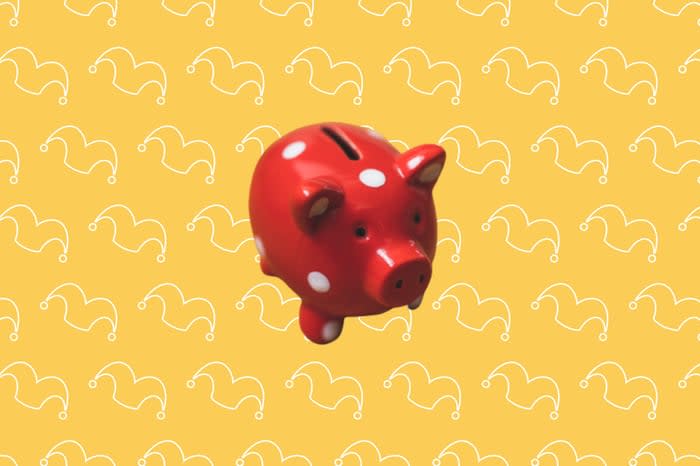Is $10,000 Too Much to Keep in a Savings Account?

Image source: The Motley Fool/Unsplash
If you've managed to scrape together a five-figure savings account balance, pat yourself on the back. It's a big accomplishment. But if you hope to grow your wealth even further, you want to place your money where it will do you the most good.
You might wonder if $10,000 is too much to keep in a savings account. The answer depends on your financial goals and what you mean by "too much." Here's what you need to know.
Is it safe to keep $10,000 in a savings account?
The first thing you might wonder is whether it's even safe to keep that much cash in a savings account, and it definitely is. All reputable savings accounts carry up to $250,000 of Federal Deposit Insurance Corporation (FDIC) insurance per person, per bank, per ownership category. This protects your money if your bank ever fails.
Those who open a savings account with a credit union receive a similar protection from National Credit Union Administration (NCUA) insurance. It also reimburses you up to $250,000 per person if your credit union goes under.
So there's no risk of losing money with a savings account, provided you keep your account details private. But there could be a risk of your money losing value over time.
Is a savings account the best home for your $10,000?
The bigger question you should ask yourself is whether a savings account is the best home for your money. That depends on what you intend to use it for. Here are three common scenarios.
Emergency fund
An emergency fund is cash you keep close at hand for unexpected expenses, like an ER visit or an insurance deductible. You can also use this money to get by for a few months if you lose your job.
A high-yield savings account is a great home for this cash. It'll keep your funds accessible, and there's no risk of loss. You'll also earn some interest on your savings. The best high-yield savings accounts right now offer around 5.00% APY. That could add $500 to a $10,000 balance in one year.
Near-term expenses
High-yield savings accounts are also good homes for cash you plan to use within the next five to seven years. This could be for purchases like a car or home down payment, a vacation, or a major life event, like a wedding.
You usually don't want to invest these savings in the stock market, because it can be volatile in the short term. You'd risk losing some of your hard-earned cash. A savings account helps you grow your money while avoiding these risks. You could also try a certificate of deposit (CD) to boost your wealth while keeping your money safe.
Long-term savings
A savings account is usually a poor choice for long-term savings. Since immediate accessibility isn't as important here, your goal is probably to maximize your earnings. But even the best savings accounts have interest rates that are usually lower than the inflation rate. So while your balance might climb, its buying power could actually decrease over time.
You're better off investing these funds in a brokerage account or a retirement account. This carries a risk of loss, but the stock market tends to deliver strong returns over time. The S&P 500 -- a popular stock market index -- has a 10.7% average annual return over the past 30 years. That could earn you $1,070 on a $10,000 initial balance after one year (though the stock market returns vary greatly from year to year).
It's also fine to split your savings between a few places. You could keep some cash in a savings account for your emergency fund and invest the rest, for example. Base your decision on whether accessibility or maximizing earning potential is most important to you.
Alert: highest cash back card we've seen now has 0% intro APR until 2025
This credit card is not just good – it's so exceptional that our experts use it personally. It features a 0% intro APR for 15 months, a cash back rate of up to 5%, and all somehow for no annual fee!
Click here to read our full review for free and apply in just 2 minutes.
We're firm believers in the Golden Rule, which is why editorial opinions are ours alone and have not been previously reviewed, approved, or endorsed by included advertisers. The Ascent does not cover all offers on the market. Editorial content from The Ascent is separate from The Motley Fool editorial content and is created by a different analyst team.The Motley Fool has a disclosure policy.
